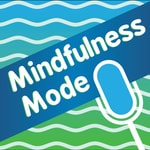The Tao Te Ching for Everyday Living – Détails, épisodes et analyse
Détails du podcast
Informations techniques et générales issues du flux RSS du podcast.

The Tao Te Ching for Everyday Living
Dan Casas-Murray
Fréquence : 1 épisode/6j. Total Éps: 81

Classements récents
Dernières positions dans les classements Apple Podcasts et Spotify.
Apple Podcasts
🇺🇸 États-Unis - philosophy
04/08/2025#99🇫🇷 France - philosophy
04/08/2025#75🇫🇷 France - philosophy
03/08/2025#55🇬🇧 Grande Bretagne - philosophy
01/08/2025#57🇬🇧 Grande Bretagne - philosophy
31/07/2025#47🇬🇧 Grande Bretagne - philosophy
30/07/2025#30🇬🇧 Grande Bretagne - philosophy
29/07/2025#37🇺🇸 États-Unis - philosophy
29/07/2025#100🇨🇦 Canada - philosophy
28/07/2025#89🇨🇦 Canada - philosophy
27/07/2025#62
Spotify
Aucun classement récent disponible
Liens partagés entre épisodes et podcasts
Liens présents dans les descriptions d'épisodes et autres podcasts les utilisant également.
See allQualité et score du flux RSS
Évaluation technique de la qualité et de la structure du flux RSS.
See allScore global : 68%
Historique des publications
Répartition mensuelle des publications d'épisodes au fil des années.
Tao Te Ching Verse 81: Staying Connected with Truth
Saison 1 · Épisode 81
vendredi 9 avril 2021 • Durée 29:36
Tao Te Ching Verse 81
translated by Isabella Mears
Faithful words may not be beautiful,
Beautiful words may not be faithful.
Those who love do not quarrel,
Those who quarrel do not love.
Those who know are not learned,
Those who are learned do not know.
The riches of the self-controlled person are in the Inner Life.
When one spends for others, one has more for oneself.
When one gives to others, one has much more for oneself.
Heavenly Tao blesses all and hurts no one.
The way of the self-controlled person is to act and not to fight.
Photo by Nastya Dulhiier on Unsplash
Staying Connected
In this final verse of the TTC, I feel like there are three things with which Lao Tzu leaves us:
The first is that when we are connected with Tao (which is always, btw), we can
See without looking
Listen without hearing
Feel without touching
Internalize without smelling or tasting
The second is the property of reflection - both internal and external to ourselves, which to me means that when I look inside, the Tao is reflected back. Ripples in a pond, while they emanate outward, always return to the source.
And the third is that emulating the Tao is the way to align ourselves with it, just like a magnet points toward the closest pole.
How do we practice all of this? That is our individual choice! Throughout the podcast, we have discussed different ways to put the principles into practice, and have acknowledged that those aren’t the only ways. In fact, I suspect that like the Tao, the number of ways I can use to practice those principles are infinite. In my short journey so far with the Tao, I have learned four centering mindsets that lead to different practices for different times, and I’ll leave them with you for your consideration:
- I must approach the Tao with as much sincerity as I can. It doesn’t matter how deeply sincere I am - just the best I can do in the moment is enough.
- I ask Tao for the willingness to see things a different way. I ask for awareness.
- I ask Tao to show me what I can do to practice.
- I ask Tao to help me be willing to practice once I know the way.
This is pretty much the cycle for me. It is simple, AND easy to do, at least most of the time. This mindset has helped me to become open to new ways of seeing things, new meditations, new contemplations, and what I feel is the coolest thing yet: being able to work with Tao to transmute my hangups, fears, and the negativity that has been with me since childhood into a loving, very real connection with myself, others, and the environment around me.
I am experiencing being human. It can be great. It can be horrifying. It can be incredibly beautiful. I can choose to do it alone. I can choose to do it with Tao. The choice is mine alone, and the action is mine to take.
Tao is impartial to my choice - so even Tao doesn’t influence my choice or action. How profoundly poignant is that? This is my journey. It is your journey. It is our journey. We all share this human experience, and yet we experience it individually. I am grateful that I have been willing enough to experience Tao in all its myriad forms. I am grateful for this human experience. I am grateful I can know compassion, contentment, and humility. I am grateful I have had this experience because of and with...you.
Tao Te Ching Verse 80: Accessing the Utopia Within
Saison 1 · Épisode 80
vendredi 2 avril 2021 • Durée 31:57
Tao Te Ching Verse 80
translated by Hua-Ching Ni
Let there be small communities with few inhabitants.
The supply of vessels may be more than enough,
yet no one would use them.
The inhabitants would love living there so dearly that they would never wish to move to
another place.
They may have every kind of vehicle,
but they would not bother to ride them.
They may have powerful weapons,
but they would not resort to using them.
They would return to a simple system of cords and knots to record their simple events,
as was done in ancient times.
They would be content with plain food,
pleased with simple clothing,
satisfied with rustic but cozy homes,
and would cling to their natural way of life.
The neighboring country would be so close at hand that one could hear its roosters crowing
and its dogs barking along the boundaries.
But, to the end of their days, people would rarely trespass the territory of another's life.
Photo by Johnny Cohen on Unsplash
Utopia On the Surface
My experience with this verse has been unexpectedly beautiful.
In this verse, he outlines utopia:
- Abundance
- Harmony in the Community
- Ability to Travel and Defend but no need for either of those things
- Simplicity in Knowledge Management
- Comfortable lifestyle
- Peace with the Neighbors
So as I’m reading it and reflecting, knowing everything that I’ve learned and practiced so far, I can see that the utopia is actually possible!
There have been two times when I’ve witnessed this, and I didn’t know what it was at the time, but I knew things were different. I’ll tell you about one of them.
In one of my trainings in the Army, I was in what we’d call a squad - about 8 of us in a small group. We were to train, eat, and sleep together for about 35 days. Some of my comrades would have forgotten an item or two, and just me - I would offer what I had blindly. Now someone might say that was a little dumb of me - you know, like I should have given of my overflow, not my cup, right? But naive as I was, I did it. I did that for a week or two, and I noticed that the others started doing the same. Soon, we were a functioning little family unit, and we looked out for each other and our needs. It became normal. Some time later, maybe about 3 weeks, one of our cadre remarked that there wasn’t any infighting in our group like the other squads. They wondered what it was. At that moment, I knew. And it wasn’t like I could have said anything about it - there was no way I could have said that I was the cause in the beginning. It was one of those subtle things that folks weren’t even paying attention to, to include myself! But I knew it.
As I’m considering that experience with that group and reading this verse today, I’m thinking about at least observing how my journey with the Tao has affected my relationships since I started. At home, I have enjoyed a deeper connection with my spouse as I grow with her and we share spiritual insights. At work, I have opened up to more ways to be of service, and interesting opportunities have presented themselves. With friends, I have practiced humility and have met some people that have had profound impacts on my life - and statistically, it seems pretty much impossible that that would have occurred had I gone out searching for them in a deliberate manner.
Tao Te Ching Verse 71: Working Toward Conscious Awareness
Saison 1 · Épisode 71
vendredi 29 janvier 2021 • Durée 25:22
Tao Te Ching Verse 71
translated by Hua-Ching Ni
One who regards one’s intellectual knowledge as ignorance has deep insight.
One who overrates one’s intellectual achievement as definite truth is deeply sick.
Only when one is sick of this sickness can one cease to be sick.
One who returns one’s mind to the simplicity of the subtle truth is not sick.
One knows to break through conceptual knowledge in order to directly reach the subtle
truth of the universe.
This is the foundation of one’s health!
Photo by Harry Cunningham on Unsplash
Break On Through to the Other Side
Jim Morrison’s song lyrics aren’t all that far off from this second part of the verse. He starts out talking about the day destroying the night and night dividing the day. Hmm, sounds kind of Yin and Yang to me. Then there are the last couple verses in the song that talk about there being a side of life that is there and different from our immediate perceptions.
In this Tao Te Ching Verse, Lao Tzu says that because we recognize that our minds can’t think us into blissful enlightenment, just that recognition alone is what allows us to look in a different direction that unlocks the door to connection with the Tao.
To me, this is clear only after I have taken some time to reflect how the Tao isn’t a concept; rather, it’s a thing we call that universal truth that we are always experiencing. Some folks call it God, some call it the universe, some call it Allah, some call it the Buddha, nirvana, Shiva, Kali - while there are subtle differences in each of those personifications, the list of ways we refer to that universal truth are pretty much the same. It is the spiritual energy that moves around and through us, of which we very much are a part.
You can’t start a gasoline-engine car by getting in and willing it to turn on. We can’t access the Tao just by enhancing our knowledge of it. The car needs a key, a human to turn the key, and a bunch of other parts to work together. We must open ourselves to the Tao, be willing to be vulnerable with it, allow it to show us things and do things for us. We must feel the Tao to access it.
So not gonna lie, this seemed impossible for me in the beginning. Mostly because I had no idea what I was supposed to do. But, with a little patience and by practicing some of the other verses in this book, I was able to catch a clue, and as long as I continue to practice, I find that truth after truth is revealed as I progress.
Tao Te Ching Verse 70: Paying Attention
Saison 1 · Épisode 70
vendredi 22 janvier 2021 • Durée 31:12
Tao Te Ching Verse 70
translated by Bruce R. Linnell
My words are very easy to understand,
Very easy to practice.
But there is no one in the world who can understand them,
There is no one who can practice them.
My words possess a lineage,
My duties possess a ruler.
Now : only because I am without-knowledge,
Thus I am not understood.
Those who understand me are rare,
Consequently I am one who is valued!
Thus the sage wears coarse cloth, but carries jade in her Heart.
Photo by 五玄土 ORIENTO on Unsplash
The Return to Harmony
How would you describe the color red to a person who might be born without sight? Here you are, around colors your whole life, watching them mix to create new colors, playing around with them, and you are trying to describe what sensation you get when you see the color red to someone who simply doesn’t know.
Lao Tzu says that his teachings are easy to understand and easy to practice - like our ability to experience things. In Harmony with the Tao, Lao Tzu practices the Way - which when you’re in it, in flow, you get it.
Maybe like a dream? When you're in the dream, things just seem to make sense, whether they’re logical or not. That male person who is embodying my mother and who is popping wheelies in a car over there? That all makes sense - at the time. But then I open my eyes and try to make sense of it, or even more challenging, try to explain it to someone else, and well, yeah. Not happening.
So yes, easy to understand and easy to practice - if you get it. Which is why I feel he says that even though they’re easy, no one can understand and no one can practice. The Tao is something that you just have to ‘get,’ isn’t it?
Well that’s not fair, I might say. How is it that the Tao is available to everyone and yet I can’t get it if I don’t get it? Well. on the surface, it would appear that all doors are locked, wouldn’t it? Like if I’m not plugged into the Tao, I’m basically talking about something that might as well be a dream, or an imperceptible color.
I guess it’s a good thing that the Tao is always giving. All I need to experience just a tiny bit is a little bit of the opposite of what I’ve got between my two ears in the beginning. For me, and most of the time, I had habits of shutting out the Tao - they just developed as my sense of self did. You know, fear, anger, embarrassment, guilt, shame. Those things. But when I started looking in the opposite direction of those things, the Tao suddenly unlocked its doors and I was able to enter. Actually, I think it was me who unlocked those doors from the inside - the Tao did nothing except remain available.
By practicing compassion, contentment, and humility - the three treasures - I am able to access the Tao. What seemed inaccessible before now becomes something I’ve always been able to get. Like Dorothy’s red slippers, I have with me the ability to travel home any time I want by concentrating on practicing the three treasures.
So, easy to practice and easy to understand? You bet! When I am of the world and concentrating on my worldly stuff and giving attention to all the ego-feeding desires I have? It’s pretty much impossible for me to access the Tao when I am 100% invested in that stuff. Thankfully, I’ve got tools like natural compassion, contentment and humility that I can tap into at any time to offset those things and return to Harmony.
Tao Te Ching Verse 69: Practicing Humility Humbly
Saison 1 · Épisode 69
vendredi 15 janvier 2021 • Durée 30:19
Tao Te Ching Verse 69
translated by Bram den Hond
Those who use weapons have a saying which goes:
"I do not presume to act like the host
but instead play the part of the guest;
I do not advance an inch
but would rather retreat a foot".
This is called moving forward
without appearing to move -
Rolling up one's sleeves
without showing one's arms -
Grasping firmly, without holding a weapon -
And enticing to fight when there is no opponent.
Of disasters, there is no greater catastrophe
Than thinking you have no rival.
To think you have no rival,
Is to come close to losing my treasures.
Therefore when weapons are raised,
and opponents are fairly well matched,
Then is the one who feels grief that will win.
Photo by KT on Unsplash
Practicing
For me, I have found humility to be an ongoing practice, one that requires constant attention and balance. I have experienced two sides of humility:
The first is when I feel I am superior to others or have superior morals or have said superior things or have acted in superior ways. I sometimes allow these feelings of superiority into my mind as a shortcut to connecting with the Tao. I say, look, there is evidence that we are OK and we are worthy of Harmony. I feel like this is a shortcut because it still takes an effort from me to move into Harmony - I must get still, become aware, and focus. Having not done this for much of my life, it is difficult for now. I suspect in a few years it will get easier. To practice humility in this case, I must remember that I am always OK and there is no need to feel superior to anyone or anything.
The other side of humility is when I feel unworthy. During life, there are things that occur or things that I interpret that I allow to make me feel insecure. Emotionally, financially, intimately, or socially insecure. Those are the main categories for me. This feeling of insecurity - it’s this feeling of ‘ick’ that makes me wonder if I’m even allowed to be there in life. Like there are others that are way more worthy than I am. These insecurities are also shortcuts. They are the result of me looking at what I think is evidence and being OK with the outcome - that I don’t deserve my own love because I am defective, somehow. I say this is a shortcut because it takes work and introspection to remember that despite what I may experience through my corporeal senses, I am still a perfect expression of the Tao. In the moment, it’s easier to give in and move on. And again, it is difficult for now to stop, dig through that programming, and reassess any false beliefs I have around my insecurities.
When, in the midst of a busy life, I find that once in awhile, I can feel like I‘m directly in the middle of infinity because I have practiced humility, I know that all is right with the world. I wish this and more for you.
And that will wrap it up. Thank you for considering the principle of Practicing Humility humbly with me today.
Tao Te Ching Verse 68: Practicing Non-Contention
Saison 1 · Épisode 68
vendredi 8 janvier 2021 • Durée 26:41
Tao Te Ching Verse 68
translated by Lin Yutang
The brave soldier is not violent;
The good fighter does not lose his temper;
The great conqueror does not fight (on small issues);
The good users of people place themselves below others.
- This is the virtue of not-contending,
Is called the capacity to use people,
Is reaching to the height of being
Mated to Heaven, to what was of old.
Photo by Mario Klassen on Unsplash
Practicing Non-Contention
- What do I secretly wish was better about life? In my worldly life, I secretly wish I had an awesome car.
- Next, just sitting with this, I can ask, what does this have anything to do with my social status? Do I think that if this thing was better, it would mean that I would be satisfied?
- And now the next question: why? This one is where I need to be super honest with me and consider how much of this thing I wish was better has to do with my social status or who I think I’ll be as an individual. If I had a dope ride, for example, I could roll around looking awesome and I’d have this feeling of ‘got my stuff together’ ness. Sure, a nice machine is a nice machine, and great speakers, that awesome new car smell, the sleekness with which I slide in and out of the cockpit - those are all things that are pleasurable and are a joy to experience. Apart from that, though - are they the things that are worth the money or effort that I would spend getting that experience? Or is there more to it than that? With that money, don’t I also get bragging rights, a quiet sense of satisfaction that I can afford such a cool thing?
- So the next question I can ask is, if I had this thing that I secretly wished was better, how would I use it to compete with others for emotional security or social status? If I had a great car, I could allow myself to feel a little superior to the other cars on the road. If I had a spouse that listened every time I said something, I would have important things to say. If I had a boss that told everyone how much she depends on me, I would be the best worker. If I was the cool kid in my group of friends, I could walk around and be myself without having to doubt. And if I was spiritually achieved, I could just plug into the Tao at will and make cool stuff happen.
I guess the good news is that there isn’t a shortage of ways we can practice non-contention. For me, I can start with the big things and ask why I secretly wish something was different. I can identify what I’m trying to get out of that secret wish, and I usually find that it’s because I want to feel more secure about - anything - in relation to other people. There must be people there to acknowledge I have a sick ride. There must be people there to listen to me. There must be people there to say I’m the best worker or the coolest friend. And there must be an unrealistic standard against which I am measuring myself in spiritual matters or personal achievements.
When I identify this aspect of competition within myself, I can consider how allowing the Tao to control that aspect would look. If I took my competitive attitude and set it aside for a moment, I can observe how according to Tao it could be irrelevant or how I could focus on another, more positive aspect. I could practice non-contention, and see how, when choosing this way forward, things turn out better than I could have imagined or planned.
Tao Te Ching Verse 67: The Three Treasures
Saison 1 · Épisode 67
vendredi 1 janvier 2021 • Durée 27:18
Tao Te Ching Verse 67
translated by Ellen Marie Chen
All under heaven say that my Tao is great,
That it seems useless (pu hsiao).
Because it is great,
Therefore it seems useless.
If it were useful,It would have long been small.
I have three treasures (pao),
To hold and to keep:
The first is motherly love (tz'u),
The second is frugality (chien),
The third is daring not to be at the world's front.
With motherly love one can be courageous,
With frugality one can be wide reaching,
Daring not be at the world's front,
One can grow to a full vessel (ch'i).
Now to discard motherly love, yet to be courageous,
To discard frugality, yet to be wide reaching,
To discard staying behind, yet to be at the front,
One dies!
One with motherly love is victorious in battle,
Invulnerable in defense.
When Heaven wills to save a people,
It guards them with motherly love.
Photo by N. on Unsplash
The Cycle
Not gonna lie, I’ve done this whole verse backwards for most of my life. Which I guess is OK, given that the nature of the Universe is cyclical! Here’s what I mean: Lao Tzu says that there is a divine order to things. It starts with compassion, then leads to contentment, then continues with humility. If one lives life in placing these virtues second, one courts disaster. When things are confusing, he says, remember to just start with compassion.
Right now, in where I’m at, If I were to sum up the Tao Te Ching, I’d use this verse as the cover page. Of course, I love how it is ensconced about 80% of the way through, mostly because of the reason Lao Tzu cites in the very first part - that it’s great and all but doesn't seem to have anything to do with real life. So in my pain, I became receptive to the first 80% of this teaching and practiced it as best I could along the way. This has made me even more receptive to what is for me in this moment the crux of the Tao Te Ching.
I mean we’ve talked about the different ways and aspects of compassion. We’ve talked about not judging, we’ve talked about fighting and then mourning the fight, we’ve talked a bout that do-nothing thing.
We’ve talked about contentment. Becoming aware of desires and abandoning them, attending to no-affairs, and non-competition.
We’ve talked about humility, too. Abandoning identity, service others and giving, and being vulnerable.
I feel like Lao Tzu sums up all these things for us in this verse. And not only does he say that these are the main things we’ve been discussing, he also presents the cycle, so if people like me have done it backwards, I can use the light to guide me back home. It starts with compassion, he says. Practicing that will lead me to contentment and practicing contentment will lead me to humility. When I am close and connected with these three things, I then discover that life seems to be worth living. I find limitless opportunities to take advantage of being in human form. Once I am connected - and I can reconnect any time by practicing - I move back into Harmony and can really begin consciously participating in the Divine Infinite.
Tao Te Ching Verse 66: Leading from Behind
Saison 1 · Épisode 66
vendredi 25 décembre 2020 • Durée 29:16
Tao Te Ching Verse 66
translated by Dwight Goddard
The reason rivers and seas are called the kings of the valley is because they keep below them.
Therefore the wise ones desiring to be above their people must in their demeanors keep below them; wishing to benefit their people, they must ever keep themselves out of sight.
The wise dwell above, yet the people do not feel the burden; they are the leaders and the people suffer no harm. Therefore the world rejoices to exalt them and never wearies of them.
Because they will not quarrel with anyone, no one can quarrel with them.
Photo by Janusz Maniak on Unsplash
Serving and Leading Ourselves
In meditation, I have tried to force myself to be present. This works poorly for me, especially when I’m agitated. Sometimes, I’m all focus focus focus, and I end up trying too hard and then I’m focusing on focusing, and then a thought creeps in, and then I’m all noooo that’s not how you do it, then I try to focus harder. At the end of the session, I just give up and tell myself I’ll try again.
Sometimes, I’ll tell myself that no, I’m not going to eat this. Or entertain thoughts of grandiosity. Or argue with others. I say no Dan, we’re better than that. Stop it. And while I may be able to control my physical behavior, I end up agitating myself and holding things in because even though I haven’t done the thing I didn’t want to do, I’m still wanting to do it.
Probably more so, since I told myself no. So what’s the deal here? I thought that following Tao I would be able to control this stuff.
At this point, I can ask myself - which ruler am I being right now? Am I the despot, the dictator who is ruling with fear and punishment? Or am I being the Sage that leads from behind? Well, let’s have a look: I tell myself no, and I mean it, we’re not going to do this, think this, feel this. And then I say for good measure, if we do, think, or feel this, you won’t be worthy, you’ll be weak and a failure. And then if I avoid doing it, I feel all proud, like yeah, I made that happen. Or if I don’t avoid doing it, I punish me with the same feelings with which I threatened myself. Does this sound familiar? I think this is a natural thing for us to go through...until we can become aware of and begin practicing the way of the Sage.
As the Sage, I am the gentle, weak force of gravity that gives myself a choice - and I side-step that exhausting battle completely. I lead from behind, gently guiding me, giving me the choice. Most of the time, I end up not doing the thing, being ok with the feelings, or suffering no consequence of idle thoughts I’ve given no power. When I’m aware, of course.
There are also times when I just can’t be willing. But if it’s really really important for me to not do stuff, I have yet another tool I can use! Yes, I can ask the Tao to help me be willing. It’s OK to be vulnerable, remember? It’s ok to ask the universe for help. Actually, I’ve found this to be a great thing to practice. If I’m open and patient, I gradually do become willing. All I need is a little trust, a little patience, and then a little gratitude. And of course compassion with me in case I don’t get it right the first, second, or 50th time. The Tao provides. Like every time. All I need to do is to keep walking on the Path.
Tao Te Ching Verse 65: Staying on the Path
Saison 1 · Épisode 65
vendredi 18 décembre 2020 • Durée 35:52
Tao Te Ching Verse 65
translated by Hua-Ching Ni
In ancient times, those who were well-versed in the practice of the subtle Way of the universe did not lead people to disintegrate their minds through intellectual development
for the sake of partial achievement.
Instead, they dissolved all contradictory concepts and images in order to maintain the
natural state of simplicity.
Why are people so hard to manage?
Because they have become complicated.
He who leads others with a conditioned and complicated mind is the source of calamity.
He who leads others with simplicity is the source of blessing.
To know these two principles is to possess a rule and measure, the symbol of the ancient
wise one.
To keep the rule and measure constantly in your mind,
is to spontaneously manifest integral virtue.
Deep and far-reaching is the subtle truth of integrity.
It leads all things to return from worldly divergence to one great and universal life.
Photo by Markus Spiske on Unsplash
Simply Leading
If we recall verse 19, we get a similar message, at least on the surface: Lao Tzu seems to be encouraging anti-intellectualism! And as with everything Lao Tzu, there is usually more to it than what’s on the surface.
In this verse, he opens up by saying that rulers should aim to keep the people ignorant instead of enlightening them. Taken at face value, one would be reasonably justified in saying, ‘preposterous! Blasphemy!’ Mentally, I sat there open mouthed and in shock, wondering how my 2500 year old teacher could be saying such nonsense. And then, worse, I wondered, ‘if this is crazy, what about the rest of it all?’
I doubled my efforts to understand, mostly because I didn’t want to have wasted the time I’ve already put into the Tao Te Ching by silently denouncing Lao Tzu and his crazy ideas, solely based on my interpretation of a part of this verse.
So what does this ‘keep them ignorant and not enlightened’ thing mean? Well, similar to verse 19, I think we can start to think about this by saying that we ought not overemphasize the importance of knowledge - you know, knowledge for knowledge’s sake. So with that in mind, I can interpret a little differently - the aim of the ruler is not to encourage people to develop only their intellectual achievements. In Hua-Ching Ni’s translation, he talks about intellectual development for the sake of partial achievement. And this makes sense, doesn’t it? We’ve seen over and over again that there is a difference between reading the Tao and doing the Tao. Reading about the Tao and understanding concepts is the first part - putting them into practice and integrating the principles into our lives is the other. So I feel like what Lao Tzu is getting at here is that the primary aim of the ruler is to lead with simplicity. The ruler is not trying to bring about any particular outcome; the people can do what they do. The ruler is the servant, the one who takes care of the human organization of society. The ruler is most effective when not trying to put together plans and designs that create this awesome society -- that’s the people’s job, not the ruler’s.
Tao Te Ching Verse 64: Getting Proactive with the Tao
Saison 1 · Épisode 64
vendredi 11 décembre 2020 • Durée 36:48
Tao Te Ching Verse 64
translated by Sanderson Beck
What stays still is easy to hold.
Without omens it is easy to plan.
The brittle is easy to shatter.
The minute is easy to scatter.
Handle things before they appear.
Organize things before there is confusion.
A tree as big as a person's embrace grows from a tiny shoot.
A tower nine stories high begins with a mound of earth.
A journey of a thousand miles begins under one's feet.
To act is to fail.
To grab is to lose.
Therefore the wise do not act and do not fail.
They do not grab and do not lose.
In handling things people usually fail
when they are about to succeed.
Be as careful at the end as at the beginning,
and there will be no failure.
Therefore the wise desire to have no desires.
They do not value rare treasures.
They learn what is unknown,
returning to what many have missed
so that all things may be natural without interference.
Photo by Frank Eiffert on Unsplash
The Questions
The first thing I want to do is realize how the problem I have is being caused by me. I ask myself:
- Who is the person or situation that is causing me this insecurity?
- What are they doing? If it’s a fear, I ask myself, ‘what’s going to happen if this fear comes true?’
- What type of security am I needing here or trying to get? Emotional? Financial? Social? Intimacy?
- What did I do to start a chain of events that led to me having this insecurity? A quick note - this is the most difficult part for me, as it causes me to exercise my humility here. The important thing to remember for me is that I am not concerned with the other person’s actions; they may have contributed, but I am the one looking at my own reactions.
I’ll know I’ve completed this section if I can clearly see how I am the progenitor of my anger or fear. Now the next series of questions is designed to allow me to see how I have a false belief that is contributing to my propensity to create anger or fear. I want to look at that 4th question and ask, “is there a reason I am doing this? Specifically, what belief system is at work? For me, I believe that if I do what’s in question 4, I’ll get what I’m trying to get in question 3.”
Sometimes I’ll need to explore this a bit in conversation with others or by writing. Once I know which belief is at work, I’ll write it down. I’ve come up with things like, “I am alone, I will feel content if I have money, I can feel safe if this person wouldn’t behave in this way.” Things like that.
OK, so here are the next set of questions:
- What is the belief?
- Is it true? Or did it come from a series of reactions and interpretations of reality as I was growing up?
- What is the payoff for me believing this?
- Now: what would my life and my thoughts look like if I didn’t have this belief?
- Would I be willing to consider letting go of this belief?
- If yes, when would I be willing to let go of this belief?
- Moving forward, what can I practice in order to reinforce this new outlook I have?
I find that when I move through those questions, I undo and unlearn some of those destructive thought patterns that I unknowingly created as I grew into adulthood.
Finally, I say: Thank you for showing me this. Please now show me how I may practice living with this new outlook. Please help me be willing to









